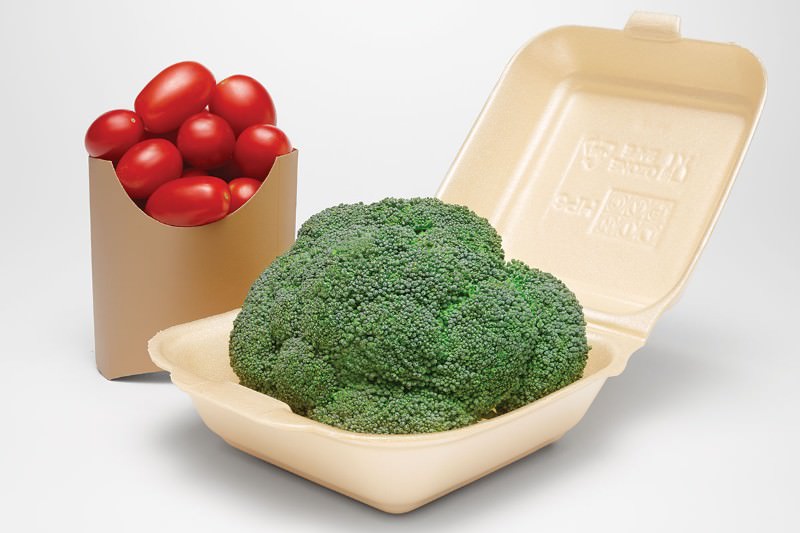
Get a load of those phytonutrients! (Image: Alexander Kent)
Do you balk at the thought of broccoli or spit out your sprouts? You’re not alone. Having an automatic aversion to bitter tastes is normal, because for a long time it was crucial to our short-term survival – many of the compounds that make plants taste bitter are toxins. But we now know that in small doses, these so-called phytonutrients can also be good for our health. At the same time, many plant growers and food manufacturers are removing the bitter compounds from some fruit and veg that are supposed to be bitter.
The best solution would be to find ways to enjoy these bitter plants more, and seek out heritage varieties with their natural bitter tang. And there are ways to cook bitter foods to make them more enjoyable. Indeed, understanding the role of bitter is an essential skill for a cook. Bitter is vital for the harmony of a recipe and crucial to the composition of a meal. It enhances the flavours in a dish, subtly adding complexity and depth, often without any marked bitter taste, as the recipes below will testify.
Bitterness increases appetite and gets your gastric juices flowing so beginning a meal with something bitter makes good sense. This could be a bitter aperitif, or a first course with a touch of bitterness – bitter greens stirred into a soup or pasta for example.
Rich, fatty dishes can be tempered and rendered more digestible by pairing them with bitter green vegetables.
Choose chicory
Bitter and fat are perfect taste partners, each balancing the other. A little bitterness in a multi-course meal will help cleanse your palate. Try chicory salad, for example. And if you find chicory too bitter, use bacon fat, or anchovies in the dressing, as both fat and salt suppress the bitterness (you can get the same effect if you sprinkle a bit of salt on cucumber – it tastes sweeter.
At the end of a meal, a rich dessert with a hint of bitterness is less cloying and more satisfying than a sugary sweet one. Try a dusting of bitter cocoa powder rather than powdered sugar on a chocolate dessert.
Even the plates you use and the dinner music you play can alter your perceptions of the food’s bitterness. Serve the chicory salad on a round plate, it will seem less bitter than if you use a square one. Avoid low-pitched, solemn music played on brass instruments, unless you want the food to taste more bitter. Instead choose bright, high-pitched piano music, as it will diminish your impression of bitterness. Taste, after all, is created in the brain.

Grilled radicchio and creamy cheese (Image: Aya Brackett)
A colourful descendent of weeds that grow wild around the Mediterranean, radicchio has crisp leaves with a pleasant bitterness. In this starter, the radicchio is grilled, which softens the leaves and enhances their bitterness. The bitterness is then balanced by the addition of a creamy cheese making this dish a perfect starter to a meal. Bitter foods stimulate the bitter receptors found in our stomach and intestines and start our gastric juices flowing making us hungry. So this dish will whet your appetite and make you anticipate the rest of the meal with pleasure.

Pork chops in coffee blackcurrant sauce (Image: Aya Brackett)
Well-raised pork chops come with a thick layer of fat that gives the meat flavour. To balance this fat bitter coffee is added to the sauce and then tempered with musky, intense blackcurrant preserves to create a flavourful sauce with an undertone of bitterness. Bitter foods act as a digestive and so here the sauce helps us appreciate and digest the good quality pork fat and encourages us to take another bite. Serving this dish with a side of bitter greens or a bitter green salad would also balance the fattiness of the pork chop.

Ronny’s Brussels sprouts and chickpeas (Image: Aya Brackett)
Brussels sprouts are not the most popular vegetable, and if boiled too long they are mushy, sulphurous and bitter. This is the recipe that converted me and will change the minds of even the most avid sprout hater. The Brussels sprouts are halved, cooked in fat – here it’s olive – oil, until they are dark brown. This caramelising of the sprouts reduces their natural bitterness, which is further muted and balanced with the starchy chickpeas, preferably freshly cooked. The Brussels sprouts have texture and their bitterness is tamed, it is really a perfect, if unusual combination.

Bitter chocolate tart (Image: Aya Brackett)
We often forget that chocolate is naturally bitter, the addition of too much sugar masks our appreciation of its complex taste. Try a bitter chocolate bar and you discover its nuanced taste: rich, fruity, along with bitterness and astringency. It is these many flavours that make this tart so delicious and satisfying. The bittersweet chocolate adds depth and the bitterness is further enhanced by dusting the tart with cocoa powder. Just a small slice is very satisfying, and the perfect end to a meal, as the bitterness will keep those digestive juices flowing.
By Jennifer McLagan
Комментариев нет:
Отправить комментарий